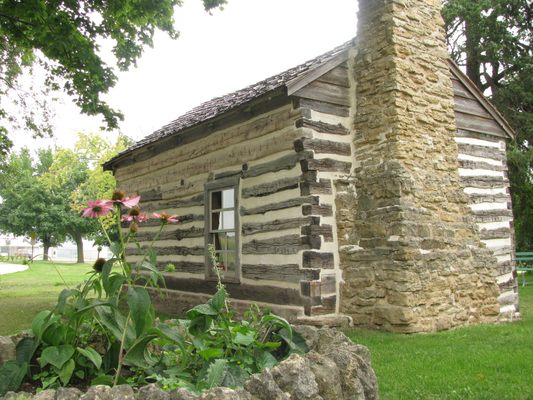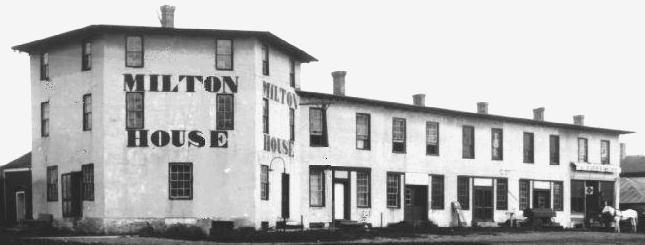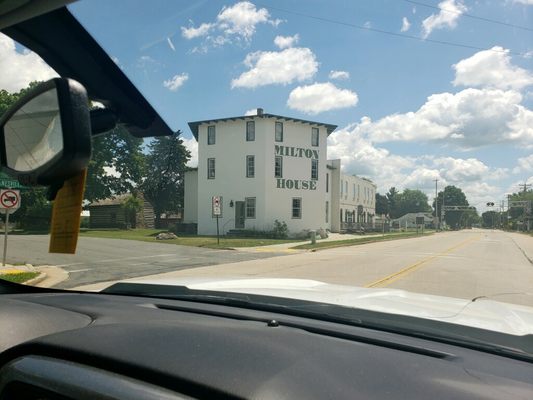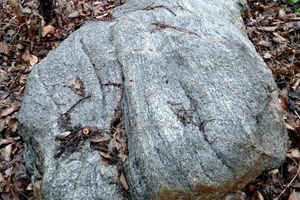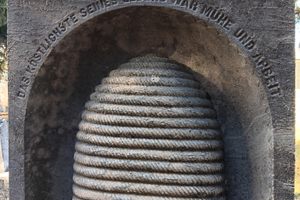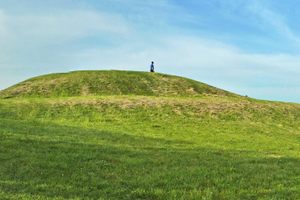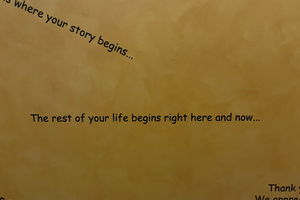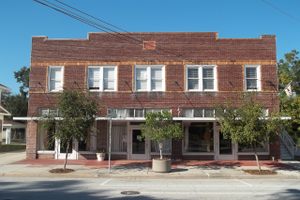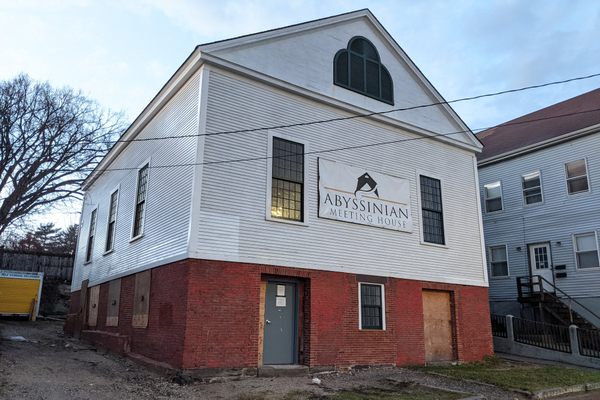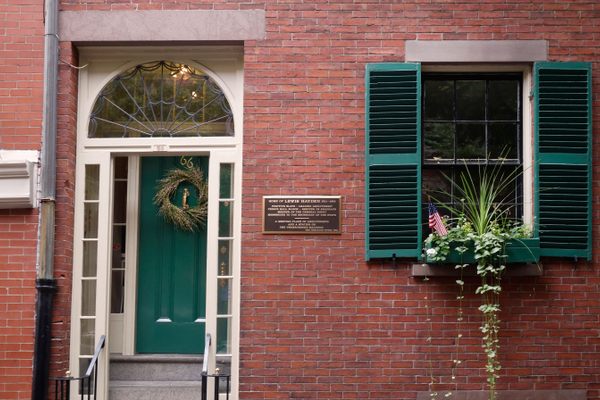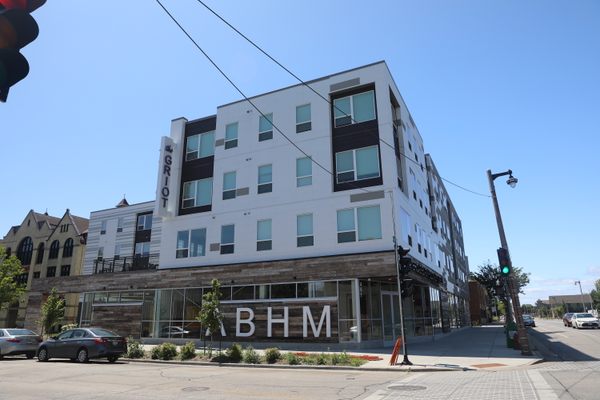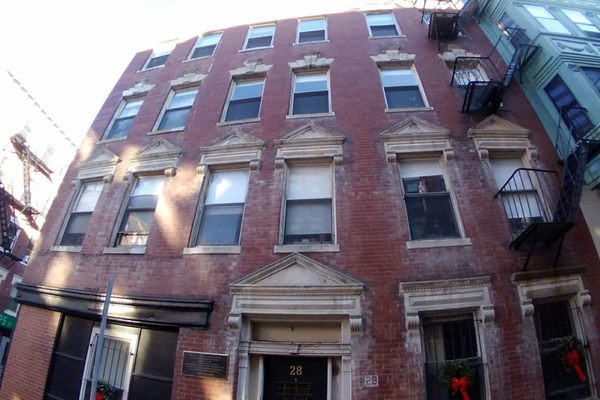About
Going underground is one way to understand the hardships endured by enslaved people seeking freedom with the help of the loose network known as the Underground Railroad. The Milton House Museum offers a tour of a rare, preserved underground tunnel that was used by these freedom seekers on their way to Canada.
Milton House was founded by Joseph Goodrich, a leading abolitionist in Wisconsin, the founder of the now-closed Milton College and a member of the Seventh Day Baptist Church. The tour shares Goodrich’s vision for his frontier community as well as the innovative use of his own formula for lime grout to build the inn, which is a National Historic Landmark.
The tunnel connects Milton House’s root cellar with a pioneer cabin behind the inn that once served as its kitchen. Originally its average heigh was just 42 inches, but has been enlarged to allow visitor access.
During Milton House's heyday from 1844 to roughly 1880, the three-story hexagonal inn hosted travelers from as many as 25 daily stagecoaches and later from passenger trains. Yet none of the visitors before or during the Civil War discovered that other “guests” sometimes hid below the inn.
A relatively small number of freedom seekers—estimated to be about 20—passed through Milton House as they escaped from plantations in Missouri and Arkansas. One of them, Andrew Pratt, lived in the community for four years and wrote to Wisconsin governor Edward Salomon to ask why he could not serve in the state’s Civil War regiment on the same terms as other men. Governor Salomon’s reply politely sidestepped the issue.
Milton House Museum is a National Park Service Underground Railroad Network to Freedom site and the only authenticated Underground Railroad site in Wisconsin open to visitors. The museum expanded and revised its exhibits in 2020 to better reflect freedom seekers’ experiences before and during their journey north.
Related Tags
Know Before You Go
Due to the COVID-19 pandemic in 2020, guests are required to call 608.868.7772 to make a reservation to ensure proper distancing between tour groups. When the pandemic is not an issue, summer tours are available 10 a.m. to 3 p.m. on Tuesday through Sunday from Memorial Day to Labor Day, excluding Father’s Day and July 4. During the rest of the year, visitors are welcome but are required to make a reservation to ensure a guide is available.
Published
June 3, 2020
Sources
- National Park Service Network to Freedom website (https://www.nps.gov/subjects/ugrr/index.htm) and the National Park Service website section on National Historic Landmarks and the Network to Freedom (https://www.nps.gov/articles/national-historic-landmarks-and-the-network-to-freedom.htm).
- Welch, Doug. The Milton House: Interests of the Highest Value. Published for the Milton Historical Society by Black Rose Writing, Castroville, TX. 2017.
- Milton House Museum Guide for Docents, which has numerous sources, including: • Portrait and Biographical Album of Rock County, Wisconsin, Acme Publishing, Inc., 1889, p. 443-444. • Milton Bicentennial Committee, The Bicentennial History of Milton, (Milton, Wisconsin: Milton Printers, 1977), p. 6 • Isthmus Architecture, Milton House Historic Structure Report, Madison, WI: Isthmus Architecture Inc., 2000. p. 44. • Letter from Andrew Pratt to Salomon, 22 Nov. 1863. Wisconsin Executive Department. Military Correspondence: Series 49, Box 23; Wisconsin Historical Society Archives. Salomon’s answer to Pratt, 27 Nov. 1863. State of Wisconsin, Executive Department, Administration, Letter Books, General, Series 33, vol. XI, p. 84; Wisconsin Historical Society archives.


